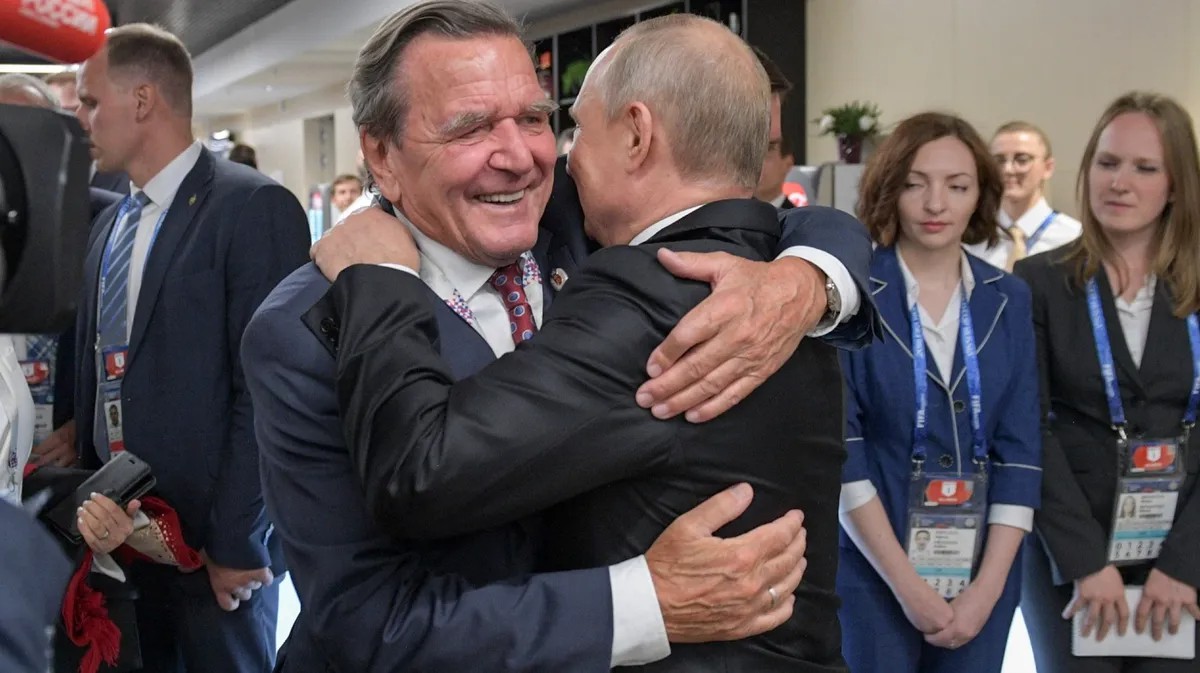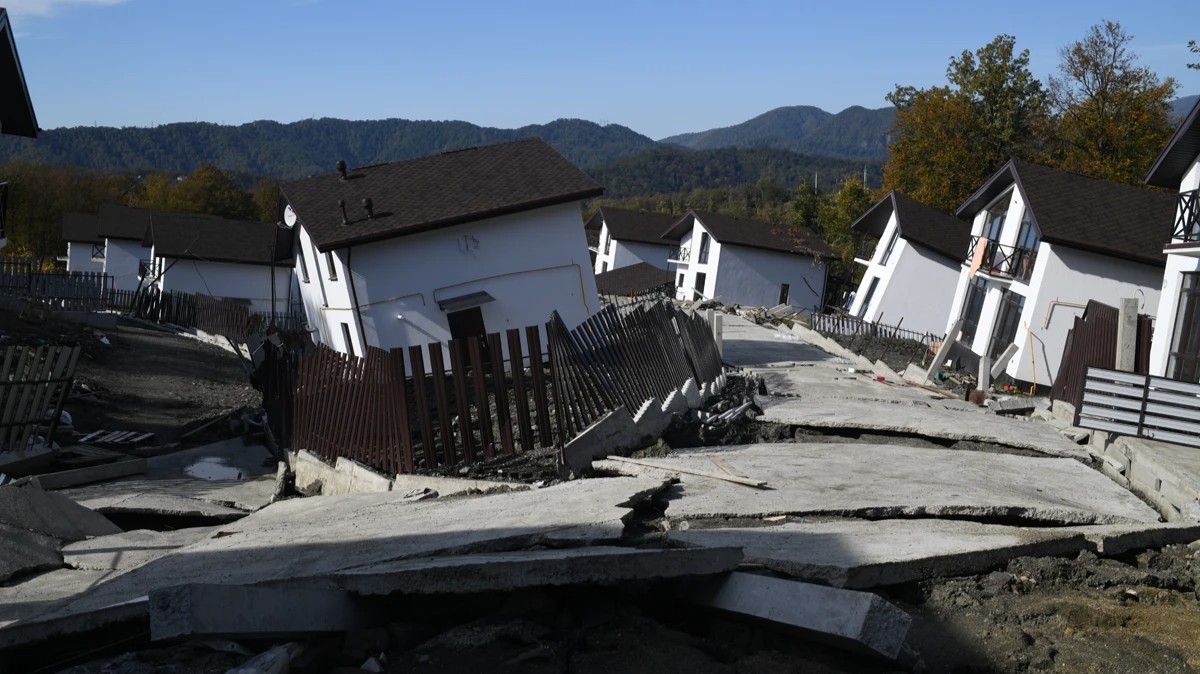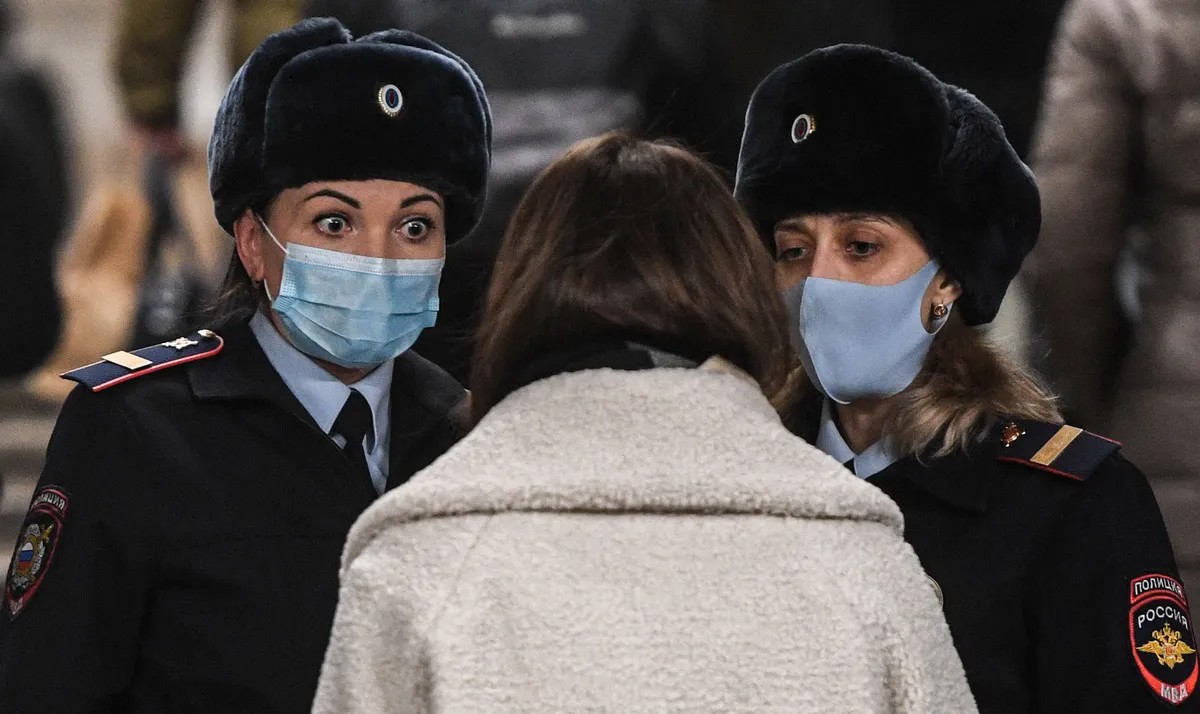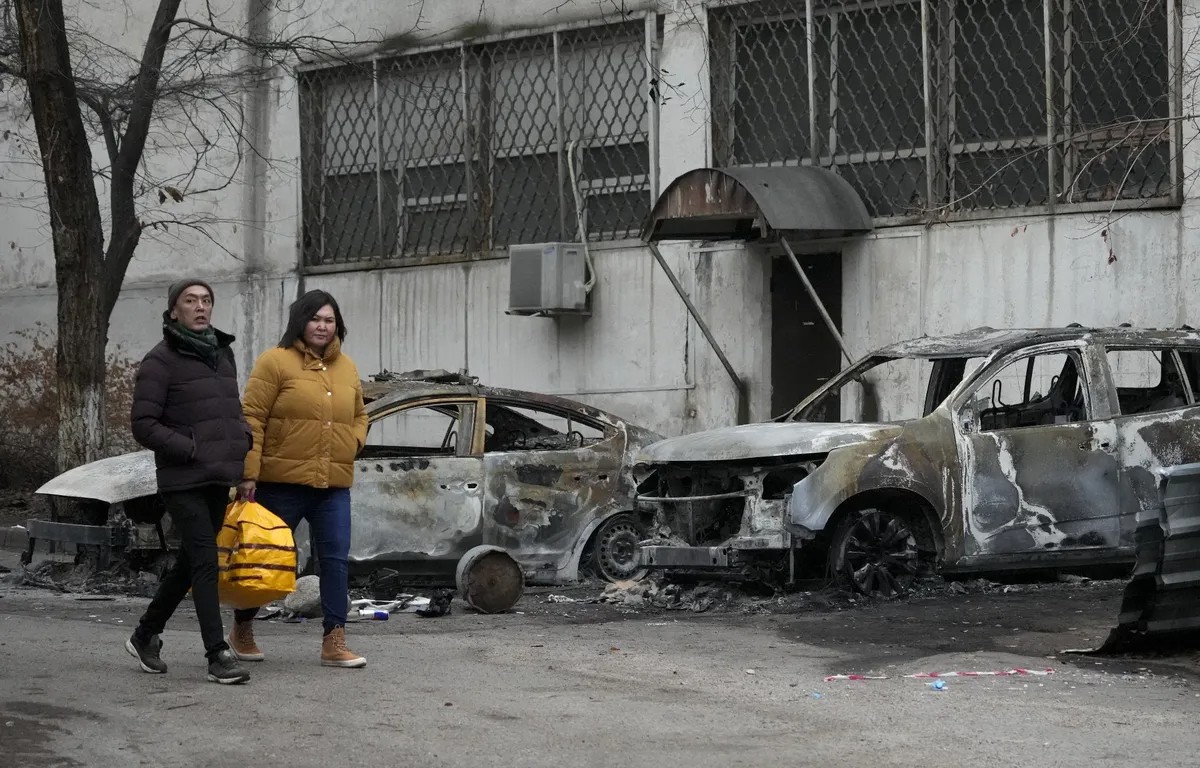
Gerhard Schroder and Vladimir Putin. Photo by Alexey Druzhinin / TASS
Here what’s in store for you this week:
- This week we expose the growing army of Putin’s high-profile lobyists in the West;
- We report on the land grabs epidemic in Sochi that’s ruining the lives of residents;
- Imprisoned for an exclamation mark: we explain the authorities’ crackdown on ‘illegal’ symbols;
- Plus, last month Russia sent troops to crack down on mass pro-democracy protests across Kazakhstan. We break down recent independent polls on Russian perceptions of the unrest.
Corrupt Land Grabs in Southern Russia, Illustrated
Despite its reputation as a sunny resort city, the lives of Sochi residents are anything but bright. Local authorities are seizing thousands of hectares of land from ordinary people, and are doing nothing to stop profit-hungry developers from selling new homes that they know to be on landslide-prone territory. This practice is pervasive across the country. It also found its way to annexed Crimea, where land wars and mass evictions often aggravate the region’s environmental degradation. Nadezhda Isayeva and Svetlana Vidanova talk to some of the families in Sochi who share heartbreaking stories revealing the human cost of official lies and negligence.

Photo by Svetlana Vidanova / Novaya Gazeta
WHY IS LAND BEING SEIZED? The land seizures are the result of a court case in which the plaintiff — none other than the Russian Federation itself — claimed that a “group of unknown persons” had been illegally appropriating land from the Sochi National Park. The Investigator of Sochi’s Ministry of Internal Affairs Ustin asked the court to seize the supposedly stolen land. In September 2021, the judge ruled in favour of seizing 11,066 plots, constituting
4,983.01 hectares of land. This is a common land grabbing practice that allows corrupt authorities to reapproriate territories and lease them for profitable development to their cronies.
STOLEN HOMES. Isayeva and Vidanova interview just some of the ordinary people whose lives have been turned upside down by the seizures. Igor Keller bought 15 acres in the village of Chereshnya to build a house. Even though he made sure to check that the plot was “clean” before purchasing, the authorities have now seized it. “When wood is cut, chips fly. We are the chips”, is his dark summation of the seizure. 71 year-old Pyotr Mokryakh — who was granted a plot of land by the fish farm he once worked for — is another victim. His story is poignant.
“They seized my land”, he says, “Why? I didn’t break any laws. I planted pine trees here so that it would be beautiful. I have a greenhouse. The old trees disappeared, I planted young ones, I don’t know if I’ll wait for the harvest …”
KLEPTOCRACY IN ACTION. Olesya Glovaskaya and her young family have suffered twice at the hands of the authorities. First the authorities destroyed their house to make way for Olympic facilities. Then — after selling the apartment they were given in compensation — they are told that the 12 acres of land they purchased with the proceeds belong to the Sochi National Park.
“In our city, it is generally impossible to buy land because prices are rising. What are we meant to do next? Everything was fine, and then in September 2021 it turns out that we are on the territory of the national park. On what basis?”
CORRUPTION-FULED DEVELOPMENT BOOM EXACERBATES ENVIROMENTAL DEGRADATION. The soil of Sochi’s plentiful hills cannot withstand the pressure of the construction boom. Even before the Winter Olympics, experts warned that almost 80% of Greater Sochi was in a landslide zone. Elena Negorutsa highlights how unscrupulous developers continue to build lucrative properties on territory that they know to be unsafe. In October last year, in the village of Sergei-Polye a landslide destroyed 20 new houses, a road, and the village’s communication infrastructure. The families who lost their homes are still stuck in a nearby sanitorium where they were placed by the Sochi administration. The compensation promised by Mayor Aleksey Kopaygorodsky has not materialised. One local resident told Novaya:
“There used to be a school here, that's why the street is called Novoshkolnaya […] it was destroyed by a landslide in 1984. There also used to be houses and a football field but they, too, were wiped away in a landslide. The land below us is just clay, and heavy rain makes it slide over the rock like pancakes in a frying pan.”
Sanatorium staff warn that the residents could soon be evicted, while local authorities have washed their hands of responsibility and stopped answering the phone.
LOCALS ARE TRYING TO FIGHT BACK. Sochi residents are creating Telegram groups to organise opposition to the land seizures. However, many are afraid to actively protest. In one chat, a user suggested blocking roads and received 12 likes from others in the group. They were then fined for “calling for unauthorised actions.” The landslide victims are filing lawsuits against the developers and the local authorities. While the result of the suits remains to be seen, the silence from Moscow does not bode well. The Presidential Administration and the Children’s Ombudsman have both dismissed appeals from the affected residents, insisting that the seizures are legal.
BACKSTORY. Officially recognized as a city in 1917, Sochi has been Russia’s premier holiday destination for over a century. Soviet dictator Joseph Stalin had a summer residence built there in the early 1930s. Holidaying in Sochi became a Soviet status symbol. By the late 1980s, around 5 million people visited the city every year. After the Soviet Union’s collapse in 1991, its popularity declined as Russians began travelling to foreign holiday destinations. Gradually falling into disrepair in the early 200s, the city got another lease on life when it was chosen to host the 2014 Winter Olympics, leading to large amounts of investment. Predictably for Putin’s Russia, the huge cash flow into the city was accompanied by widespread reports of corruption and cronyism, with many of the contractors having close ties to the Kremlin.
Read the report by Isayeva and Vidanova here.
New Way to Crack Down on Freedom of Expression, Explained
Whatever you do or say can be used against you by the Russian State. Now the same goes for whatever symbols you might use as a sign of silent dissent. Disguised as the fight against ‘Nazi symbols,’ Russian authorties use confusingly-worded laws to crack down on public signs of dissent. Even the usage of an exclamation point in wrong set up can now be labeled as ‘extremism.’ The past week has seen a spate of arrests based on Article 20.3 of Russia’s Code of Administrative Offences, which bans the display of prohibited symbols. Our Daria Kozlova reports.

Photo by RIA Novosti
THE “SWASTIKA ARTICLE”. While thosands of symbols are banned by Article 20.3, it is regularly referred to as the “Swastika” article because of multiple high profile cases against individuals who shared archival photographs from World War II featuring the Nazi swastika, even though they did not endorse the latter’s ideology. In 2020, after an appeal from the European Court of Human Rights, an amendment was introduced that requires police to take the context of the post into account. Needless to say, the authorities have no problem ignoring this stipulation.
ILLEGAL RUNES. On February 8, the Tverskoy District Court arrested Other Russia activist Alexander Rybkin for 15 days because of a tattoo featuring a Scandinavian rune. While the latter does indeed feature a swastika, it refers to ancient nordic culture (as in the Hindu tradition, it signifies prosperity or good luck) and not to Nazism.
MARIA ALYOKHINA IS DETAINED…AGAIN. On the same day as Rybkin’s detention, the Tverskoy District Court arrested Pussy Riot member Maria Alyokhina for 15 days for allegedly sharing Nazi propaganda. The accusation was based on an Instagram post from 2015 that featured three Indian women and the Hindu symbol for prosperity which the Nazis appropriated for their political ideology. Since her two year sentence following her participation in Pussy Riot’s iconic “Punk Prayer” in 2012, she has been detained multiple times for political reasons. Just two months ago, she was arrested for 15 days after publishing an Instagram post critical of Belarusian President Alexander Lukashenka.
“EXTREMIST” EXCLAMATION MARKS. On the same day as Alyokhina’s arrest, police detained feminist activist Daria Seryenko for posting a photo on Instagram last year featuring the exclamation mark symbol of Alexei Navalny’s “Smart Voting” campaign. Even though an exclamation mark in a white square is not among the list of banned symbols, the prosecution argued that its “subtext” is a call to support an “extremist organisation”, namely, Navalny’s organisation. The Tverskoy District Court gave her the same punishment as they gave Alyokhina.
WHAT’S BEHIND IT? According to Kozlova, Article 20.3 has become the new “go-to” for police when they want to suppress a civil society activist. Two years ago, Article 20.2 on the violation of the rules for holding a rally fulfilled this purpose. 20.3 is popular because it is easy to apply and provides for a wide range of possible punishments. Most significantly, it includes a ban on participating in elections for one year. Political scientist Abbas Galyamov suggests that the multitude of arrests for “forbidden symbols” is an attempt to quash opposition to United Russia ahead of the Moscow municipal elections in September.
BACKSTORY. It is common practice for the Russian authorities to crackdown on independent voices prior to important elections. In the months leading up to last September’s State Duma elections, they barred the loudest Kremlin critics from seeking public office, put increasing pressure on independent media and human rights activists, and slapped the “foreign agent” label on dozens more organisations. The spate of arrests under Article 20.3 also comes amid attempts by authorities to completely eradicate the movement and organisational structures created by Alexei Navalny after his imprisonment in January 2021.
Read the full article by Kozlova here.
Bonus Round
FOR EUROPEAN POLITICIANS, “MONEY DOESN’T SMELL”. Europe’s ties with the Kremlin are far from spotless. Our data investigation department combed the lists of affiliates of 45 largest Russian public joint stock companies and found the names of 14 foreign politicians. Among them are former Austrian federal chancellor Wolfgang Schlussel, former French Prime Minister Francois Villon, and British Conservative peer, Gregory Baker. Higher School of Economics Professor Alexei Karkin argues that, while gifting lucrative roles in State companies may have initially been the Kremlin’s attempt to buy political influence abroad, the imposition of extensive Western sanctions shows that this bid has not been particularly successful.
Russia has a long track record of courting international individuals, which it believes could help bolster the regime’s legitimacy and further its cause both domestically and abroad. It often likes to describe people sharing their political sympathies as ‘experts’ despite a frequent lack of qualifications beyond a shared political vantage point. However, some genuine political figures are involved in these projects, specifically Eurosceptic politicians on both far-right and far-left sides of the political spectrum. Most notably, French and Italian far-right leaders Marine Le Pen and Matteo Salvini and German far-right party AfD (Alternative for Germany.) Election ‘observers’ from Russian-controlled statelets (such as Abkhazia or Donbas) or friendly authoritarian regimes (Belarus, Venezuela, or Tajikistan) are also most welcomed by the Kremlin.

Photo by Pavel Pavlov / Anadolu Agency via Getty Images
In January, mass protests sparked by a sudden rise in energy prices swept across Kazakhstan. Russia sent troops to crack down on a pro-democracy uprising frustrated with the corrupt regime of Nur-Sultan Nazarbayev. Russia’s only remaining independent pollster, The Levada Centre, recently conducted a survey on Russian perceptions of these protests. Analyst Aleksei Levinson breaks them down.
The two most popular responses to the question “Why did the protests take place” were “dissatisfaction with rising prices and worsening quality of life” (first place) and “provocation from outside forces” (second place). 48% went with the first option, and 35% with the second. Notably, of the respondents who cited rising prices and worsening quality of life as the main reason for the unrest, more than half were between the ages of 25-34. By contrast, “foreign provocation” was a more popular answer among the older generation.“Our research tells us not about Kazakhstan”, writes Levinson, “but about Russia […] our research allowed the Russian mass consciousness the possibility of projecting their own problems onto the imaginary reality of a neighbouring country. Ominously for the Kremlin, when asked in what country similar protests might happen, respondents — particularly those of the younger generation — overwhelmingly answered with “Russia”.
This newsletter drop is written and edited by several journalists at the Novaya Gazeta newsroom. Please, support our work by promoting our newsletter with #RussiaExplained hashtag on social media.
To keep up with Novaya Gazeta’s reporting throughout the week, you can follow us on Facebook, Twitter, Instagram, and Telegram. Our video content is available on Youtube and don’t forget to visit our website for the latest stories in Russian.
The Novaya Gazeta Team